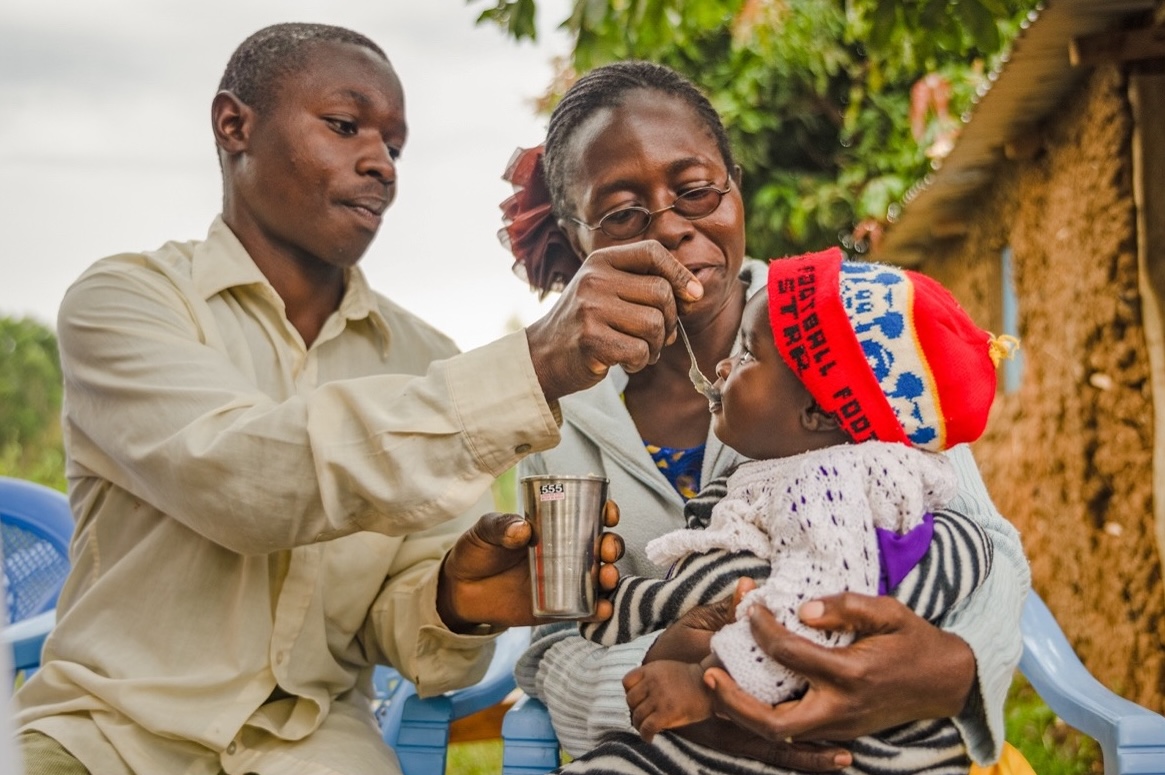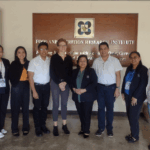In 2024, FFI marked significant progress under the USAID Advancing Food Fortification Opportunities to Reinforce Diets (AFFORD) program, which launched in 2022 with a five-year vision to strengthen national food fortification systems. However, unexpected foreign assistance funding cuts in 2025 brought the program to an early close, halting activities just halfway through its planned timeline. Despite this premature end, the USAID AFFORD program delivered meaningful impact in its short lifespan—catalyzing policy change, expanding technical support to countries, and deepening partnerships across sectors.
USAID AFFORD was a pioneering initiative dedicated to combating global micronutrient deficiencies, with a particular focus on groups vulnerable to poor nutrition, such as women of reproductive age and young children. TechnoServe implemented the project in partnership with FFI, Nutrition International, and ISF Advisors. USAID AFFORD took a comprehensive approach to advancing large-scale food fortification by engaging public, private, and civil society stakeholders. The project’s activities aimed to create sustainable solutions for better nutrition and improved health outcomes worldwide by uniting diverse expertise and resources.
During the second and final year of USAID AFFORD in 2024, FFI expanded its efforts in communications, knowledge management, research, and technical assistance activities to advance large-scale food fortification in Zambia, Madagascar, and globally.
Key Contributions
2024 Project Highlights
- Conducted a systematic review of the economic outcomes of food fortification: In collaboration with Cochrane Response and TechnoServe, FFI systematically reviewed the economic outcomes of food fortification, concluding it is highly cost-effective in most contexts. The manuscript is under peer review. In the interim, the pre-print version is available on medRxiv.
- Developed a resource library to support a fortification knowledge hub: This work was intended to support the development of a resource library on Nutrition Links, a global multi-sector nutrition resource hub hosted by another USAID project that is no longer active. However, as a part of this effort, FFI systematically catalogued food fortification resources. Find the resource library database here.
- Began developing training materials for industry and government monitoring of fortification programs: FFI collaborated with TechnoServe and Nutrition International to create training materials for quality assurance, quality control, and regulatory monitoring of fortification programs. An implementation plan, gap analysis, and detailed content outline were developed to support a sustainable training model. This work was in progress at the end of the USAID AFFORD project.
- Conducted a situational analysis of fortification in Eastern and Southern Africa:
FFI contributed to a comprehensive analysis of the fortification landscape across 20 countries in the Southern African Development Community and the East, Central, and Southern Africa Health Community, encompassing wheat flour, maize flour, rice, oil, salt, and sugar. The analysis produced two-page country profiles for each country and a report summarizing barriers and implementation statuses for large-scale food fortification.
- Provided in-depth technical assistance in Zambia, Madagascar (comprehensive assessment, informational briefs) to identify large-scale food fortification opportunities and fill information gaps
- Initiated a 5-year project to support large-scale food fortification in 15 ECOWAS member countries (cancelled due to USAID contract terminations)
2023 Project Highlights
- Conducted an in-depth, evidence-based country prioritization exercise of USAID Feed the Future countries to identify areas of greatest nutritional need and fortification opportunity
- Developed a rapid zinc spot test and protocol in partnership with Brigham Young University: This test addresses a critical regulatory monitoring gap and will help food producers and regulators quickly identify zinc that is added to fortified foods
- Supported large-scale food fortification opportunity assessments in target countries such as Senegal (comprehensive assessment and separate market assessment) and Haiti (comprehensive assessment, inclusive of market assessment) to evaluate large-scale food fortification landscapes and inform USAID investments
Knowledge Dissemination and Operational Support
As the knowledge management and communications lead for USAID AFFORD in year one, FFI used a knowledge management assessment to develop the project’s knowledge management and communication plans. In this role, FFI also shared knowledge generated through the project both internally and externally, and contributed significantly to strengthening communication within the global fortification community.
FFI supported the creation of a Communications Working Group under the Global Fortification Technical Advisory Group (GF-TAG) to facilitate updates, amplify large-scale food fortification messages, and support advocacy efforts. In 2024, the GF-TAG Communications Working Group developed an advocacy toolkit with resources that national stakeholders can use to advance fortification. The toolkit included policy briefs, fact sheets, information about key advocacy opportunities, and communication resources.
FFI also supported key internal knowledge management resources by producing content for a Large-Scale Food Fortification 101 series that featured trainings from fortification experts. The series provided project staff with a strong, aligned technical foundation for fortification principles.
Although the USAID AFFORD project is no longer active, the resources it developed, its legacy of capacity building, and its efforts to catalyze policy change will continue to serve the fortification advocacy community and the countries in which the project worked.
Header Photo: RTI Globaldev



